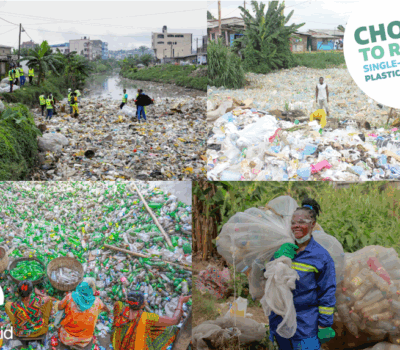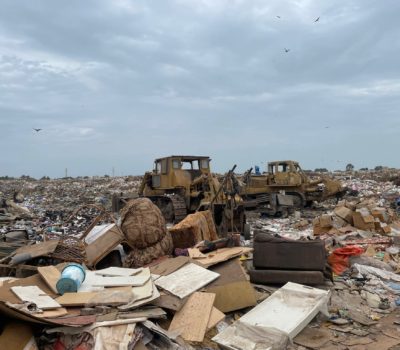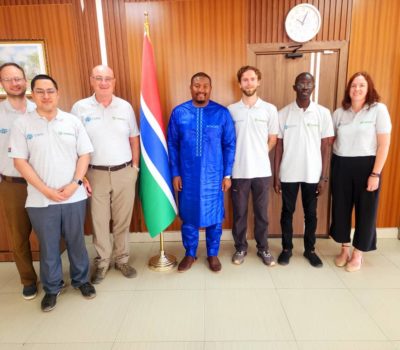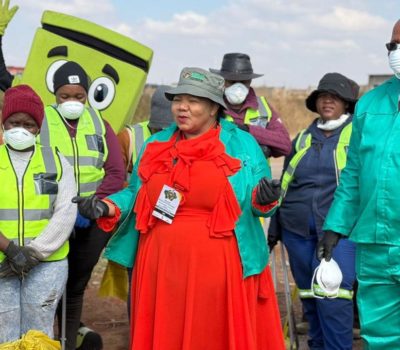WasteAid launches largest-ever Ugandan study as part of textile re-use initiative
News
Author: Holly
Published: 5 August 2024
One of the most extensive studies ever undertaken into waste management in Uganda has been launched by WasteAid. We are leading two initiatives involving more than 1,000 people to explore whether textile waste can be saved from landfill and reused to support the local economy in the country’s capital Kampala.
The move comes as the Ugandan Government considers banning second-hand textile imports in a bid to stimulate domestic manufacturing and tackle its growing waste issues. Estimates suggest that Uganda imports more than 90,000 tones of second-hand clothing and other textiles each year – the equivalent of around 40,000 cars.
In one of the largest studies undertaken in Uganda, we are surveying more than 1,000 traders at Kampala’s largest second-hand textile market, Owino,. The research will provide us with a detailed understanding of the textile value chain and identify the textiles that can best be reused and recycled. As part of the assessment, the survey team is also meeting with policymakers, and business leaders to provide comprehensive insights into the challenges of tackling this complex issue.
Our Uganda Circular Textile Project aims to support a transition to a local Ugandan textile manufacturing base by identifying how unwanted clothing and other textiles can be redirected away from landfill to local businesses that will turn them into new products and items for resale. It’s one of 28 projects globally funded by the Foreign Commonwealth and Development Office under the Sustainable Manufacturing and Environmental Programme (SMEP).
This is the first time that WasteAid has been active in Uganda. It allows us to bring proven approaches and experience developed in countries including South Africa and The Gambia and adapt them to address Uganda’s textile challenges.
It’s hoped this initiative project could provide useful data to the Ugandan government to inform a textile policy that works for the 5,000 women and men who currently rely on second-hand clothes for their livelihood as well as one that helps to inform how to stimulate the local textile economy.
WasteAid’s Director of Programmes, Michelle Wilson said: “The second-hand textiles market is integral to Uganda’s economy, providing vital income, particularly for women who rely on the sale of second-hand clothes to feed their families and send their children to school.
“Ultimately, we would like this initiative to contribute to the second-hand textile policy development in Uganda – to support the development of a policy that supports the livelihoods of the informal sector, enables home-grown Ugandan textile trade to expand and but also reduces the amount of textile waste polluting the environment.”
In a second, connected initiative, WasteAid has begun working with the Ugandan Tailors Association, which represents 3,000 Ugandan tailors and a government-run college that provides students – particularly women – with practical training, to help locals develop skills and access equipment to repurpose discarded textiles.
We are working with these partners to explore reuse options such as creating household cleaning items such as mops, upholstery stuffing, and other clothing items from discarded textiles and other scraps that would otherwise be dumped or burned as a cheap alternative to fuel.
The study and textile waste repurposing programme marks an important step towards addressing the textile waste crisis in Uganda. The study is expected to be completed later in the summer and will offer valuable insights to guide future efforts in reducing textile waste. A final report will be published in the Autumn.
To find out how you can support WasteAid in tackling the global waste crisis click here.






